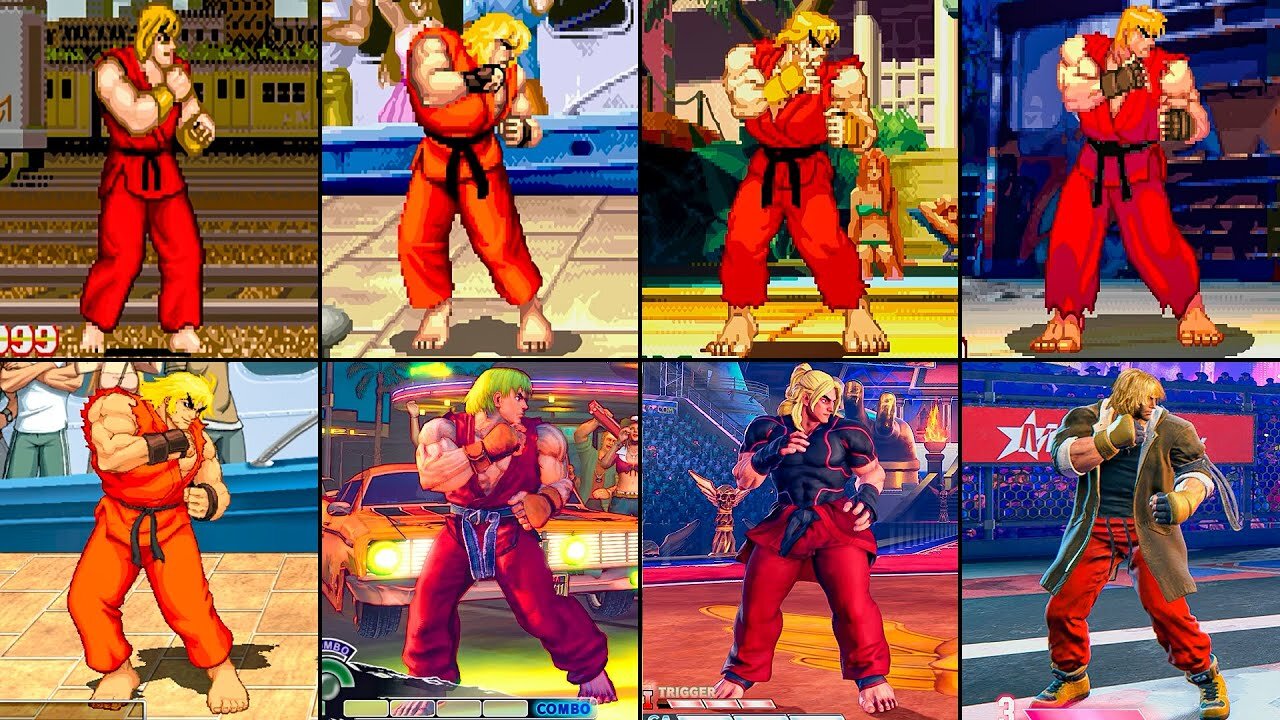Premium Only Content

street fighter evolution 1987 - 2023
The "Street Fighter" series has long been a cornerstone of the action game genre, revolutionizing the landscape of fighting games since its debut in 1987. Known for its intricate mechanics, iconic characters, and competitive gameplay, "Street Fighter" has set numerous standards in the gaming industry. This topic explores the profound impact of "Street Fighter" games on the action genre, highlighting their innovations, cultural significance, and enduring legacy.
The Birth of a Phenomenon
The original "Street Fighter" game introduced players to a new level of competitive fighting. However, it was "Street Fighter II," released in 1991, that truly revolutionized the genre. Featuring a diverse cast of characters, each with unique moves and fighting styles, "Street Fighter II" established many conventions that would become staples in fighting games. The introduction of combo systems, special moves, and distinct character playstyles set the stage for a more dynamic and engaging gaming experience.
Innovative Gameplay Mechanics
"Street Fighter" games are renowned for their deep and strategic combat mechanics. The series popularized the concept of special moves and combos, which require precise inputs and timing. "Street Fighter II" introduced the six-button control scheme, allowing for a variety of attacks and defensive maneuvers. The implementation of super moves and the EX gauge in later installments added further layers of strategy, influencing the design of many subsequent action games and fighting games.
Character Design and Diversity
One of the most notable aspects of "Street Fighter" is its diverse roster of characters. Each character has a distinct personality, fighting style, and backstory, contributing to the game's rich lore. Iconic characters like Ryu, Chun-Li, and Guile have become cultural icons, transcending the gaming world. This emphasis on character diversity and development has set a precedent for other action games, encouraging them to create memorable and varied characters.
Competitive Scene and Esports
"Street Fighter" has played a pivotal role in the rise of competitive gaming and esports. The series' balanced gameplay and skill-based mechanics have made it a favorite in competitive circles. Tournaments like EVO (Evolution Championship Series) showcase top-tier "Street Fighter" players from around the world, highlighting the game's enduring appeal and its significant role in the growth of competitive gaming. This competitive spirit has influenced other action games, fostering a thriving esports community.
Cultural Impact and Legacy
Beyond its gameplay innovations, "Street Fighter" has had a substantial cultural impact. The game's catchphrases, music, and character designs have permeated popular culture, appearing in movies, TV shows, and merchandise. The series' influence extends beyond gaming, as it has inspired numerous adaptations and crossovers with other franchises. This cultural significance underscores "Street Fighter's" role as a foundational pillar of the action game genre.
Technological Advancements and Evolution
Over the years, "Street Fighter" has continually evolved, embracing new technologies and gameplay innovations. From the pixel art of the early games to the 3D models of recent entries like "Street Fighter V," the series has consistently pushed the boundaries of visual and technical excellence. These advancements have not only enhanced the gameplay experience but also set new standards for other action games to follow.
Impact on the Action Game Genre
The influence of "Street Fighter" on the action game genre is undeniable. Its pioneering combat systems, diverse character roster, and competitive nature have inspired countless other games. Titles such as "Tekken," "Mortal Kombat," and "King of Fighters" have drawn from the mechanics and design principles established by "Street Fighter," demonstrating the franchise's lasting impact on the genre.
-
 2:48
2:48
EliteGamer Odyssey
1 year agoEvolution of Mortal Kombat Games 1992-2023
291 -
 LIVE
LIVE
MyronGainesX
14 hours ago $16.39 earnedJuly 4th Merch Drop, Iran Checkmates US, HasanAbi Big Beautiful Freak Out, And MORE!
5,172 watching -
 6:17:39
6:17:39
SpartakusLIVE
9 hours ago#1 All-American HERO delivers JUSTICE and LIBERTY to the streets of Verdansk
51.5K -
 51:22
51:22
IsaacButterfield
8 hours ago $2.49 earnedAustralia Bans Kanye & Trump To Host UFC At The White House
10.7K10 -
 1:58:26
1:58:26
JustPearlyThings
8 hours agoModern Women Are Saying NO To Independence Day | Pearl Daily
135K131 -
 1:43:32
1:43:32
Barry Cunningham
7 hours agoTHE PRESIDENT TRUMP WHITE HOUSE FIREWORKS DISPLAY AND INTERVIEW WITH GENERAL MICHAEL FLYNN
46.8K31 -
 31:54
31:54
Iggy Azalea
5 hours ago $5.07 earnedPlaying a lil blackjack on my casino, Mother.land
42.5K9 -
 25:45
25:45
Scary Mysteries
20 hours agoThe Alphabet Murders: Rochester’s Eerie Triple Tragedy
19.2K7 -
 12:59
12:59
Machete Gaming
2 days ago $3.11 earnedI HATED FC25… But Then I Tried THIS
25.8K1 -
 3:39:00
3:39:00
VapinGamers
7 hours ago $3.84 earnedFortnite Tourney Practice with DJSkids24 - Trying to Get Gouder Like My Spelling - !rumbot
17.4K1